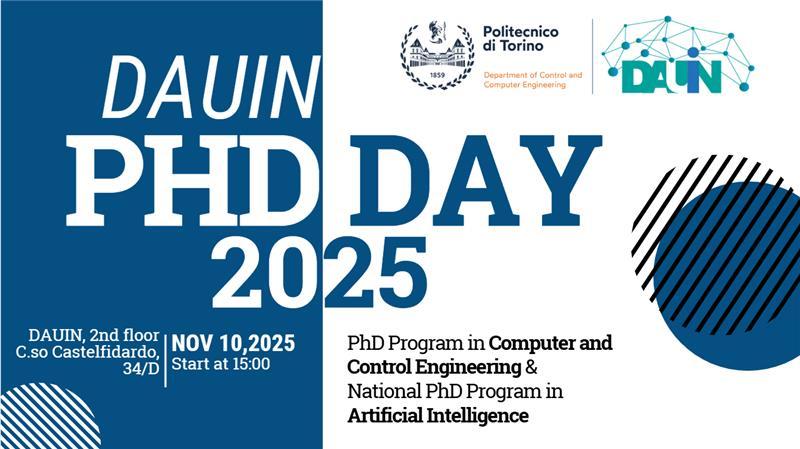
Lunedì 10 novembre 2025, al secondo piano del Dipartimento di Automatica e Informatica (DAUIN), gli studenti iscritti al secondo e terzo anno (38° e 39° ciclo) dei Corso di Dottorato in Ingegneria Informatica e dei Sistemi e del Corso di Dottorato in Intelligenza Artificiale presenteranno le proprie attività di ricerca nel contesto dell'ottava edizione del DAUIN Ph.D. Poster Day. L'evento è un'opportunità per illustrare i Corsi di Dottorato e divulgare le attività di ricerca del DAUIN. Gli studenti saranno disponibili a condividere le loro esperienze e attività di ricerca attraverso poster e demo.
Programma
Messaggi di benvenuto (15:00)
Prof. Fulvio Corno, Vicerettore per la Formazione
Prof. Luca Sterpone, Direttore Dipartimento di Automatica e Informatica
Prof. Fabrizio Lamberti, Coordinatore Corso di Dottorato in Ingegneria Informatica e dei Sistemi
Prof. Stefano di Carlo, Coordinatore Corso di Dottorato Nazionale in Intelligenza Artificiale – Industria
Presentazione e discussione dei poster/delle demo (15:15)
Durante la sessione, professori ed ex dottorandi saranno disponibili per fornire informazioni sul programma di dottorato, sull'ammissione, nonché sulle attività formative e di ricerca.
Chiusura e cerimonia di premiazione (17:30)
Consegna Premi Qualità 2025: I migliori dottorandi 2025 riceveranno un riconoscimento per gli eccellenti risultati ottenuti. Cerimonia di premiazione del miglior poster e della migliore demo.
Chiusura
A seguire un momento informale di incontro tra studenti magistrali, dottorandi, docenti e personale del Dipartimento, accompagnato da un aperitivo.
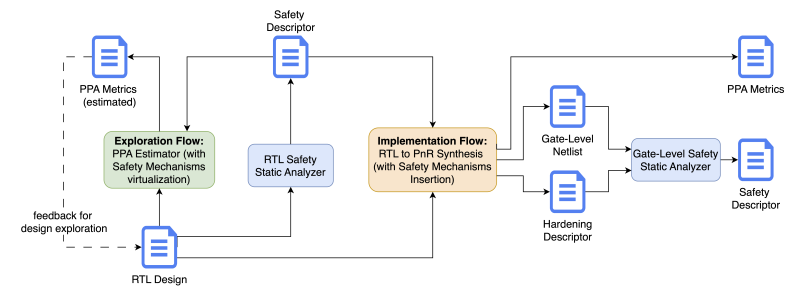
Methodologies for next generation FuSa/Soft Errors analysis and verification
This PhD research tackles Functional Safety in today's complex circuits, addressing emerging manufacturing defects from new technologies. It develops automated selective hardening methods for critical components under strict area/power constraints, replacing infeasible manual approaches. The work pioneers specialized safety methodologies for cutting-edge processing units with unique operational needs.
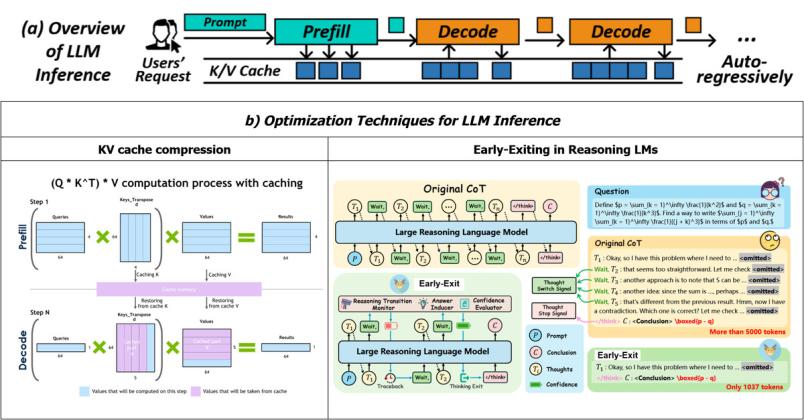
Latency-Optimized Inference for Large Language Models
This PhD research focuses on latency-optimized inference for Large Language Models (LLMs). The work covers KV cache compression using Principal Component Analysis (PCA) and related methods, alongside developing early-exiting strategies for reasoning models. By exploiting repeated and inefficient reasoning patterns, it aims to reduce latency without compromising accuracy.

Novel algorithms and synthetic dataset creation for face and body pose recognition in the wild applied in cockpit emergency access
The PhD research focuses on multimodal person recognition for human-vehicle interaction, combining face and gait analysis in unconstrained “in-the-wild” scenarios for vehicle access. The research combines deep learning algorithms and synthetic dataset pipelines with domain randomization to improve robustness, enabling reliable biometric identification in vehicles in collaboration with Stellantis.
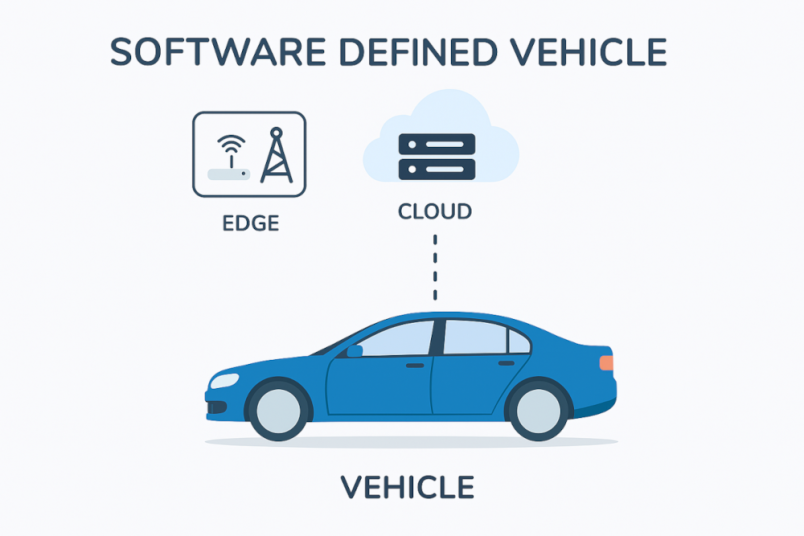
Software-Defined Vehicle
This project aims at investigating the challenges behind the “Software-Defined Vehicle”, in particular with respect to (1) the evolution of the automobile towards cloud-native technologies, (2) the management of software processes and services with real-time and mission critical requirements, and (3) the integration of the vehicle into the “computing continuum.”

Believable Virtual Humans: from Embodied Conversational Agents to Embodied Interactive Agents
Virtual Humans are artificial entities tha resemble human characteristics, not only aesthetically but also behaviorally. These entitites populate the 3D virtual world wether it is a medical simulation, a museal virtual experience or a videogame, in which the user expect them to behave according to the virtual context they are immersed in.
The objective of my PhD thesis is to investigate how these virtual humans can be made more believable, enabling them to handle complex interactions with the user and the surrounding virtual environment.
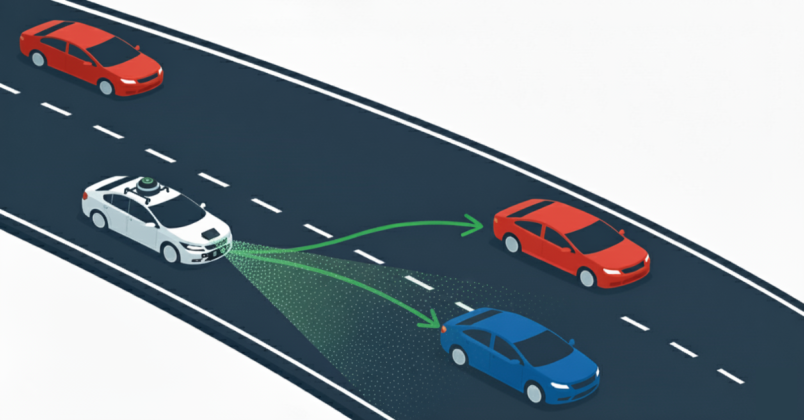
Innovative Automated Driving functional architecture based on APF/MPC approaches for new sustainable mobility systems
PhD project on Automated Driving (AD) in collaboration with Stellantis and Centro Ricerche Fiat. The research focuses on designing a flexible control architecture for Level 4+ automation, using Artificial Potential Fields (APF) and Model Predictive Control (MPC) for safe motion planning, validated through simulations and real-world vehicle testing in smart city and highway scenarios.

Confidential Computing
This research focuses on securing systems by applying Confidential and Trusted Computing principles across both cloud and edge environments. Specifically, strong and verifiable security guarantees are provided by leveraging Trusted Execution Environments and hardware-based Remote Attestation. The objective is to protect system integrity and prevent network configurations from being compromised.

Resilient Computing Architecture in the Space Communication Era
When operating in safety-critical environments like space, reliability must be ensured. My research focuses on developing FPGA-based platforms such as RePAIR, an AI-oriented solution embedding innovative mitigation strategies that minimize hardware overhead while significantly reducing system downtime and enhancing resilience against radiation-induced errors.
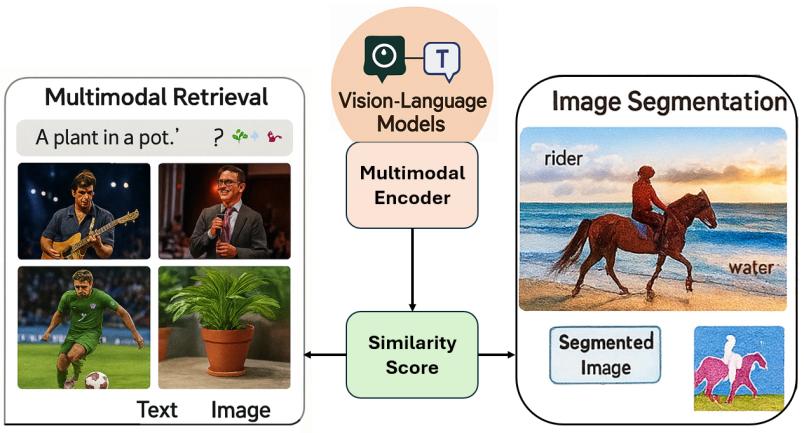
Visual and Language Models
The research examines the transfer capabilities of Vision-Language Models for downstream tasks, with a focus on the Modality Gap—a key challenge in multimodal feature spaces. Positioned between NLP and Computer Vision, it explores how narrowing this gap can improve performance in tasks like Multimodal Information Retrieval and Image Segmentation.
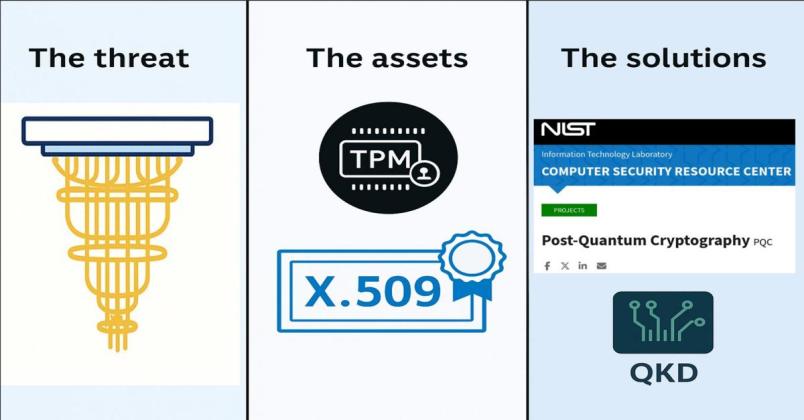
Quantum computing applications to cybersecurity
My PhD investigates post-quantum cryptography (PQC) in PKI and trusted computing. The research addresses threats posed by quantum computers to asymmetric cryptosystems and the complexity introduced by PQC, which mitigates these risks with a performance and memory cost. I developed implementations in remote attestation and digital certificate revocation mechanisms. Next, I will assess the feasibility of combining PQC with QKD in IoT via benchmarking.
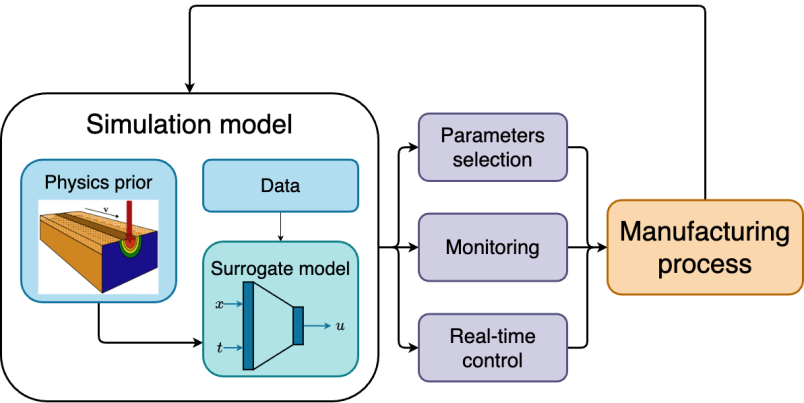
AI for new generation manufacturing systems
Additive manufacturing faces complex challenges with unpredictable outcomes. This research develops simulation models powered by scientific machine learning, combining data and physics to enable smarter process design, real-time control, and higher quality driving efficiency and reliability in modern production.
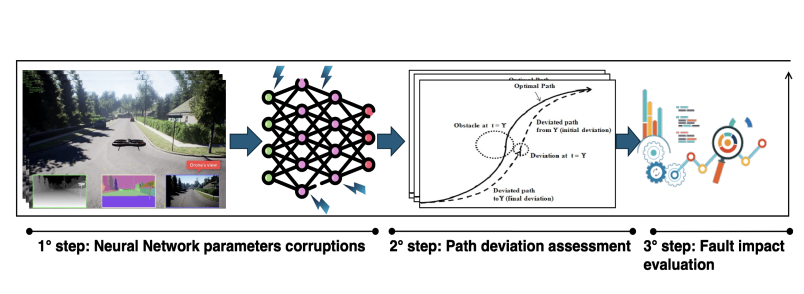
New techniques for Reliability Evaluation and Enhancement of Neural Networks
Artificial intelligence plays a pivotal role in autonomous systems, but AI hardware accelerators may suffer from faults that affect reliability. My PhD focuses on software-based solutions to improve the Neural Networks' reliability on resource-constrained devices by: analyzing fault impacts on autonomous systems; devising software solutions to improve autonomous navigation reliability.

Secure and Trusted network channels
This research advances secure and trusted network channels by combining trusted computing, confidential computing, and behaviour monitoring. Using hardware-based attestation and secure enclaves, it ensures only verified systems communicate, while protecting data in use. Behaviour analysis adds resilience, enabling adaptive, trustworthy, and confidential communication across modern networks.
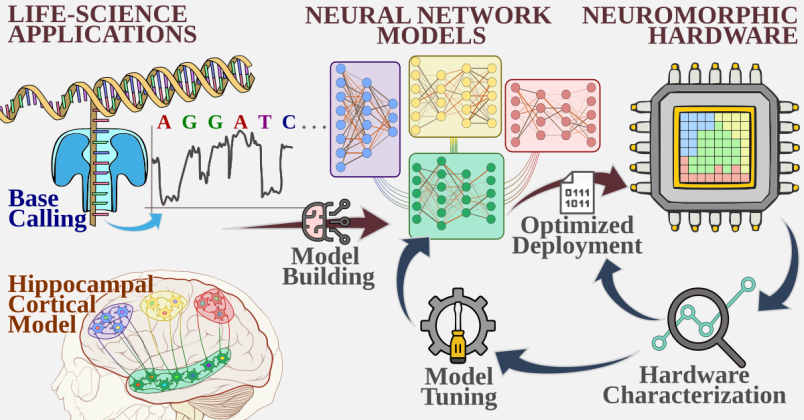
Design of bioinformatics algorithms and their implementation on a heterogeneous neuromorphic computing platform
This PhD research focuses on optimizing neural networks deployment on neuromorphic HW for life-science applications. This involves designing models, characterizing the target neuromorphic HW, and tuning the models for efficient execution. Example projects include Loihi 2 implementations of a state-space model for DNA/RNA basecalling and of a hippocampal-cortical model for semantic memory formation.
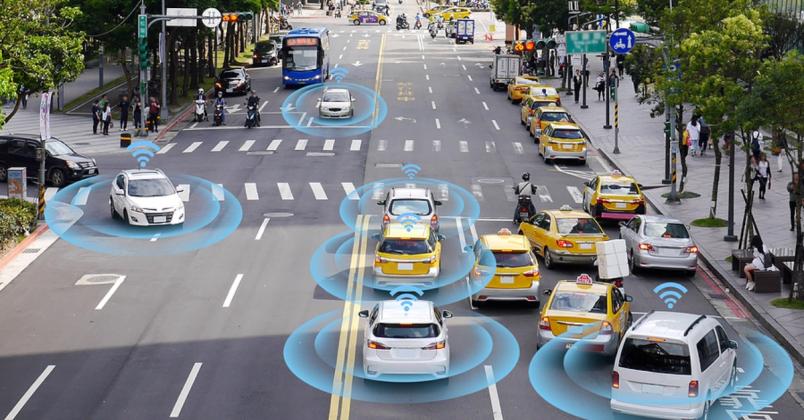
Use of Collective and Collaborative Perception for Automated Driving at L4+ Level
This research project is in collaboration with Stellantis and focuses on extending the capabilities of Autonomous Vehicles through the integration of Vehicle-to-Everything (V2X) communication. By exchanging messages, it is possible for Autonomous Vehicles to build dynamic on-board maps of their environment, vehicles can achieve greater control, reliability, and safety in complex driving scenarios.
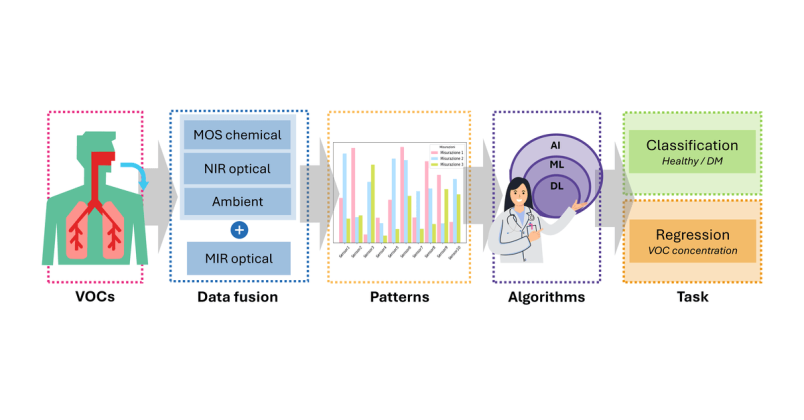
Measurements in optical spectrometry for the evaluation of vital parameters
This research, in collaboration with STMicroelectronics, focuses on the development of an NDIR optical E-nose for DM diagnosis and monitoring through exhaled VOCs. Non-specific NIR/MIR detectors generate “odor fingerprints” enhanced via MOS and ambient sensors. Lab-acquired data are fed into AI algorithms. The goal is a selective, robust, and accurate framework for point-of-care breath analysis.

Non-invasive and low-cost solutions for health monitoring during sleep
The goal of my PhD is to develop non-invasive, low-cost tools for sleep quality assessment and sleepiness prediction. The clinical gold standard for sleep study is Polysomnography, which is accurate but costly and impractical for daily use. Hence, the project explores radars, smartwatches, and cameras to enable reliable sleep monitoring and sleepiness prediction solutions.

Optimizing Compilers for the Deployment of Complex Applications on Heterogeneous Edge Devices
This research focuses on optimizing compilers for Deep Neural Networks to improve their performance and power efficiency on heterogeneous edge devices. It involves co-designing software and hardware to make AI models run more efficiently on a wide range of resource-constrained systems.
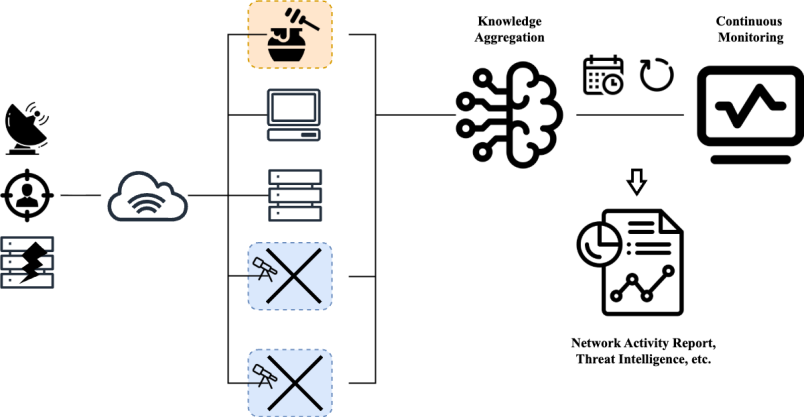
Automatic identification of cyberthreats via distributed darknets and honeypots
Network telescopes and honeypots are network sensors that collects unsolicited traffic. We aim to build a platform to monitor multiple distributed sensors to detect potential malicious activities like botnets and large-scale misconfigurations. We build a federated learning solution to aggregate knowledge across telescopes and a framework to detect novelties and track their evolution.
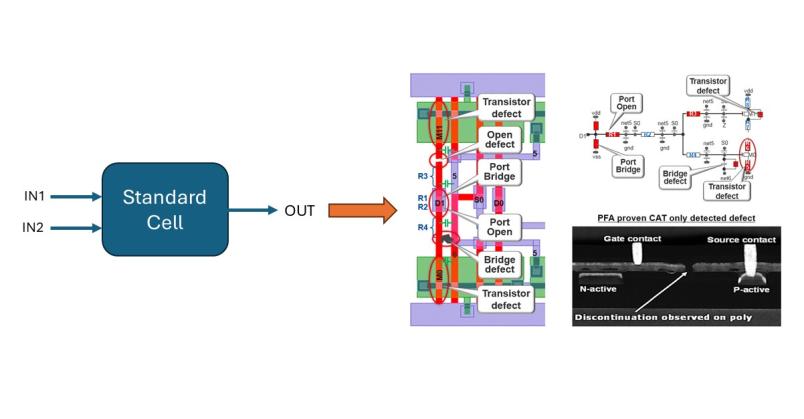
Cell-Aware Testing
The research activity advances Cell-Aware Testing to detect intra-cell defects in modern ICs. It develops methods to reduce simulation and characterization time while maintaining coverage, integrates CAT with in-field SBST, and improves efficiency, scalability, and reliability in semiconductor testing.
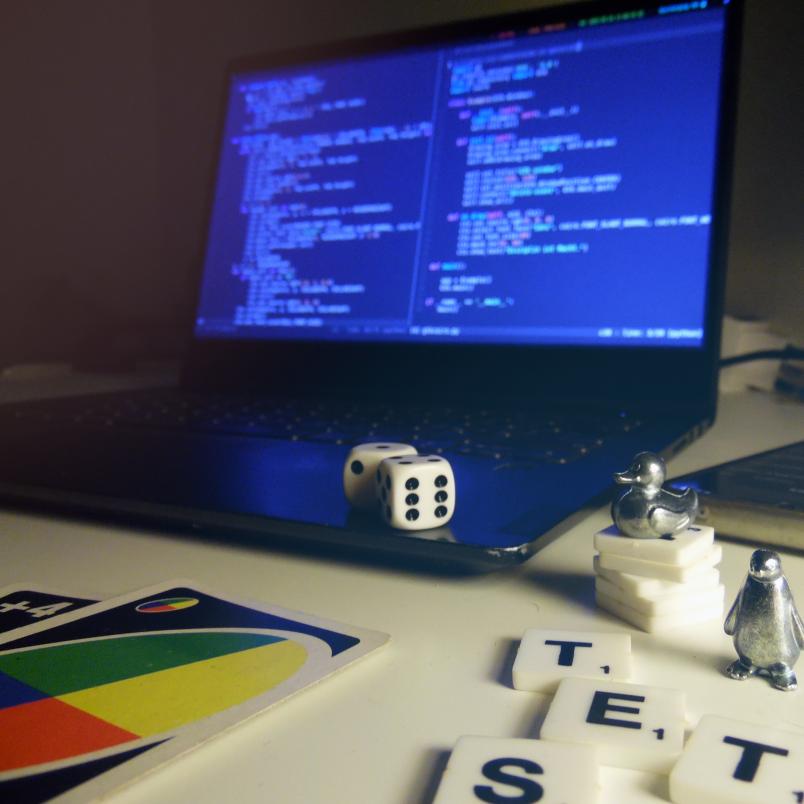
EndGame - Improving End-to-End Testing of Web and Mobile Apps through Gamification
Testing is a fundamental part of the software development process. However, several studies conducted on software testers have shown that testing is often perceived as a boring activity. This feeling negatively reflects on testing itself. The EndGame project aims to explore the benefits of gamification when applied to software testing, with a focus on mobile and web GUI-based applications.
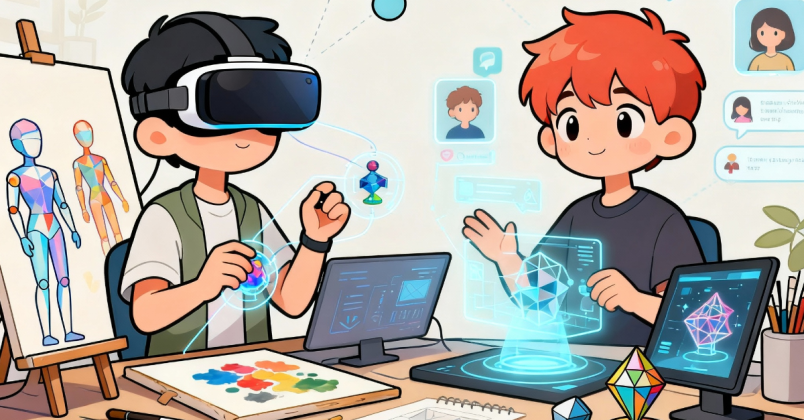
Extended Reality Technologies for Socially Engaged Virtual Environments
XR technologies connect distant people through shared virtual environments, yet achieving natural joint interactions remains challenging. Virtual spaces must ensure genuine presence and enable fluid interactions that mirror real-world dynamics. My research investigates these fundamental barriers to develop solutions that preserve authentic collaborative behaviors in XR-mediated environments.

Assessment Tasks and Virtual Exergames for Rehabilitation and Remote Monitoring of Parkinson’s Disease
This research investigates how emotional state analysis can enrich physical and cognitive rehabilitation. Using multimodal biosignals (e.g., heart rate variability, skin conductance), the goal is to design lightweight, non-invasive systems that embed emotional monitoring into innovative rehabilitation protocols.
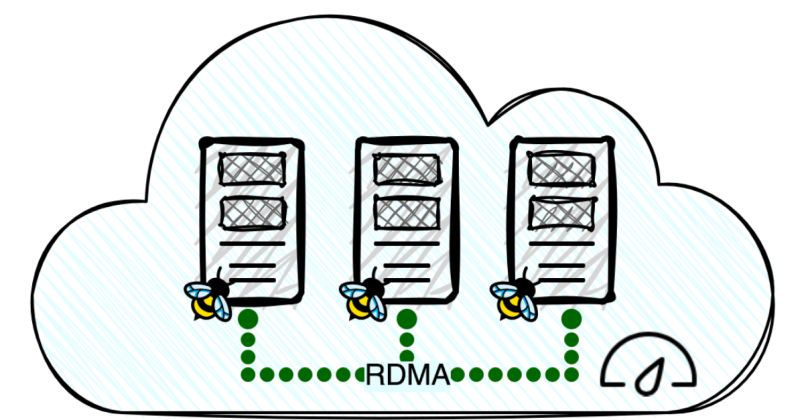
Next Generation Software for Datacenter Networking
With the cloud-native paradigm taking over the industry, horizontal traffic in the datacenter has gained significant relevance, emphasizing the shortcomings of traditional network stacks in effectively taking advantage of the ever-increasing hardware data rates. This research aims to explore cutting-edge technologies — like eBPF and RDMA — as a means to accelerate datacenter networking.
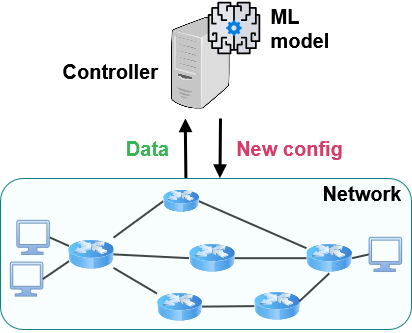
Autonomous Management of Resilient Edge Infrastructure via Centralized and Distributed Learning
The goal of this research project is to enhance edge infrastructures through learning approaches. We aim to optimize real-time decision-making, improve resource allocation, bolster fault tolerance, and increase energy efficiency through both centralized and distributed learning approaches.
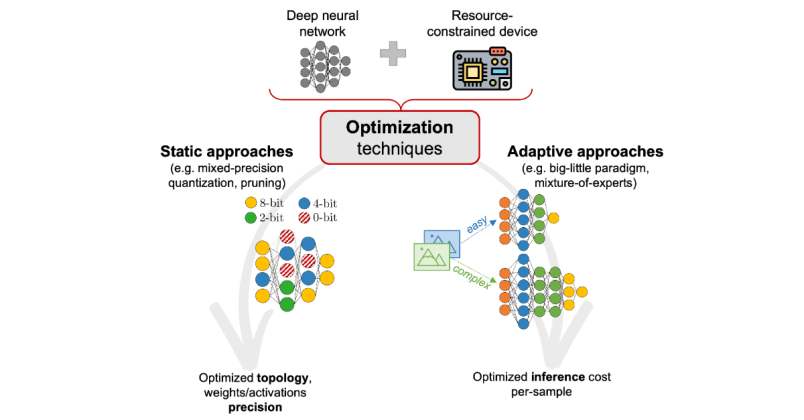
Advanced Deep Learning Optimization for Extreme Edge Applications
Running deep neural networks on edge devices can be challenging due to the memory and energy constraints, and real-time speed demands. This research explores novel optimization techniques, spanning from neural architecture search and mixed-precision quantization methods to dynamic approaches, which adapt the inference cost based on the complexity of the input data.
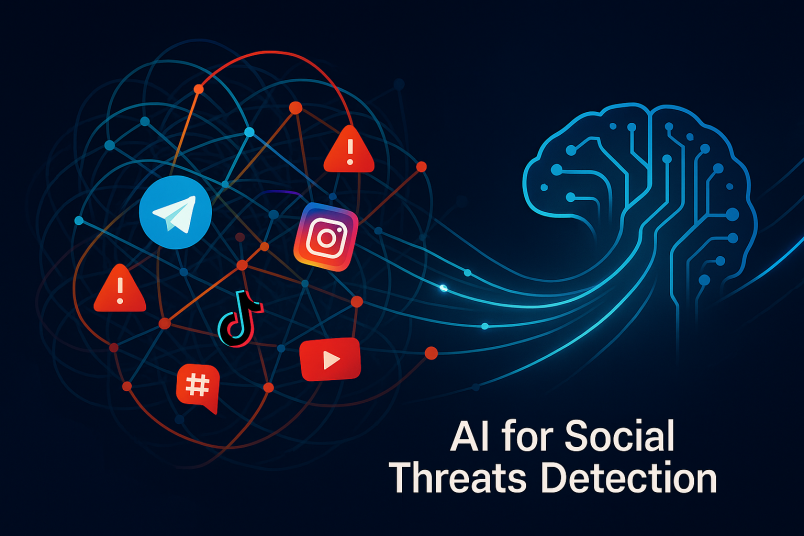
AI for Social Threat Detection in Digital Communities
My PhD research focuses on AI for social networks, studying misinformation, user engagement, and the evolution of online narratives. By combining Large Language Models with graph mining, we builds large-scale pipelines to analyze debates on platforms like Telegram, aiming to detect and mitigate social threats such as polarization and malicious coordination.

Contrastive representation learning for tabular data
My research focuses on Reinforcement Learning (RL) for Text2SQL. This field aims to train models to translate questions into executable SQL by learning from feedback provided by databases. Execution-grounded, schema-aware rewards offer partial credit for correct tables, columns, and predicates while penalizing syntax and semantic errors. We optimize models using GRPO/PPO with diverse databases and online rollouts. The results show safer, more faithful, and more robust SQL on unseen schemas.
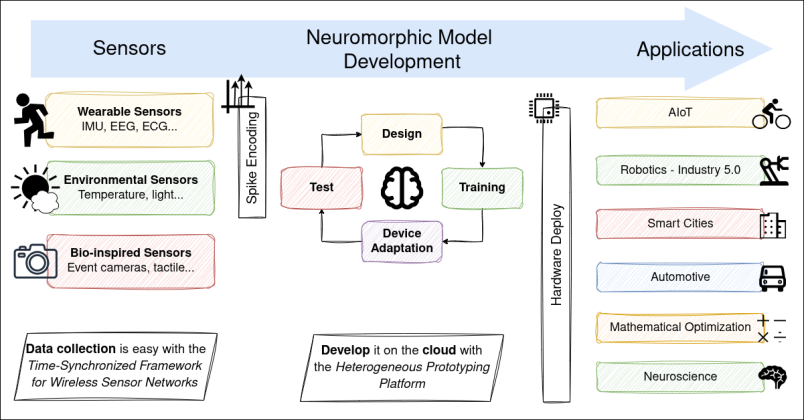
Development framework for the engineering process of edge-based AIoT sensor solutions
Neuromorphic computing is revolutioning the world of Artificial Intelligence of Things, bringing brain-inspired, energy-efficient machine learning on embedded systems. This research aims at developing a standard framework to develop these solutions, ranging from data collection to hardware deploy, leveraging market-grade platforms and custom cloud solutions.
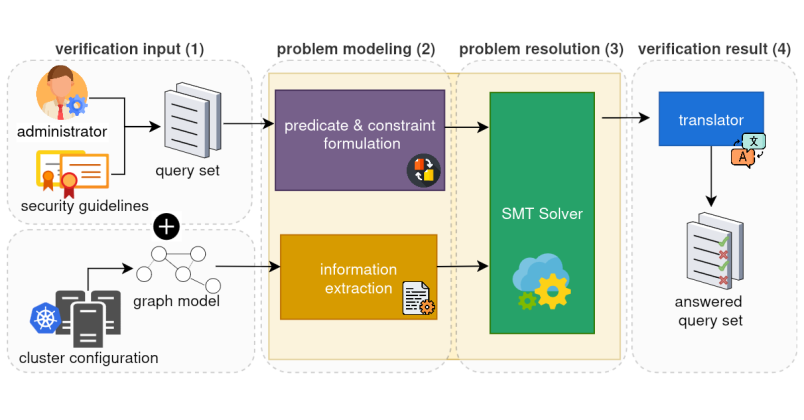
Security Automation and Optimization in Cloud Environment
This PhD research focuses on investigating novel approaches for security automation and optimization in cloud environments. The goal is to combine formal methods with high-level and user-friendly approaches, like intent-based networking, to deliver automated, provably correct, and optimized tools that strengthen and simplify cloud security operations.
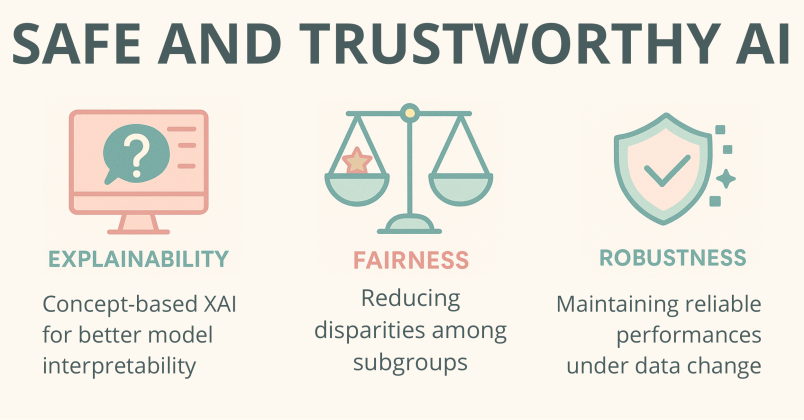
Safe and Trustworthy AI
This research focuses on developing Safe and Trustworthy Artificial Intelligence. Key areas include Explainability and Concept-based XAI for better model interpretability, Fairness to reduce disparities among subgroups, and Robustness to maintain reliable performance despite data changes. The goal is to create AI systems that are reliable, transparent, and aware of biases, promoting trust and accountability in AI.
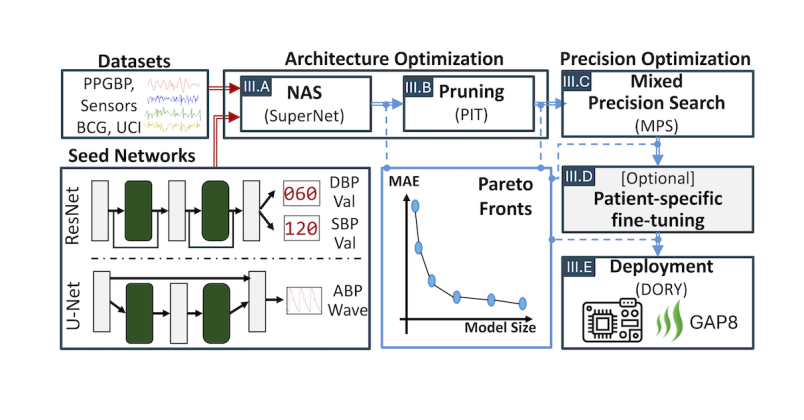
Design techniques for low-area digital circuits in industrial and medical applications based on machine learning
Low-area digital circuits are crucial in industrial and medical devices, where power and size are limited. Machine learning enables efficient design through Neural Architecture Search (NAS), pruning, and quantization, which reduce model complexity while preserving accuracy. These techniques support deployment on ultra-low-power SoCs, ensuring compact and energy-efficient implementations.
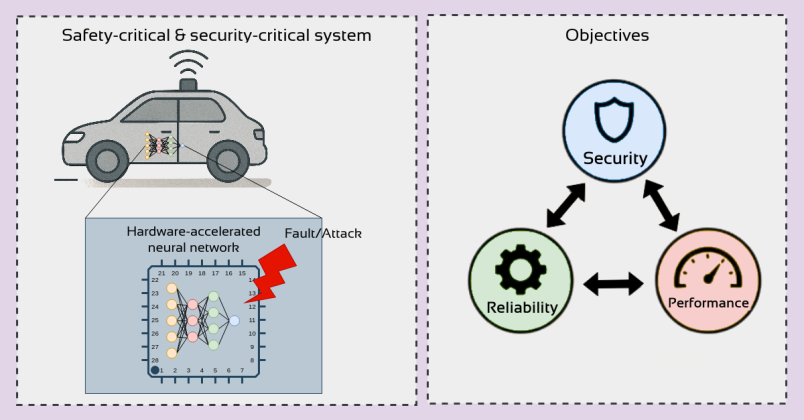
Reliability and Security of AI-based systems
Neural-network (NN)-based technology is increasingly employed in safety-critical and security-critical systems. The objective of this research is to identify a balance between hardware reliability, security assurances, and model performance in systems that incorporate NN hardware accelerators ranging from GPUs to dedicated accelerators in edge devices.
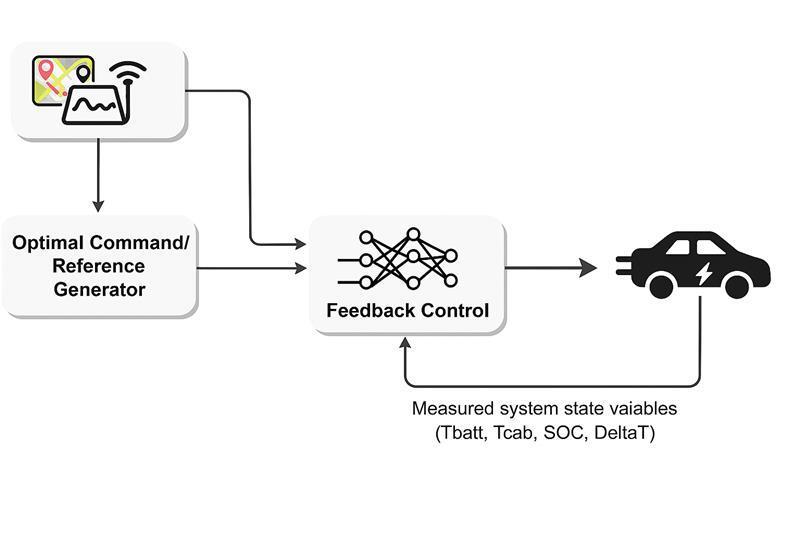
A global multi-objective approach to trip optimization and optimal propulsion system management in battery electric vehicles.
The thesis contributes to research in sustainable mobility, focusing on Battery Electric Vehicles and the challenge of extending driving range. Building on prior studies in Thermal Management System optimization, it explores neural network-based modeling to improve system representation and control using online information from Vehicle-to-everything. Solutions integrate data-driven techniques within a hierarchical Model Predictive Control framework.

Who’s what: from recognition to identification
In collaboration with a leading company specialized in providing AI solutions for the broadcasting of sporting events worldwide, the goal of this project is to explore the shift from simple identification to more in-depth recognition by means of Re-Identification (ReID). This approach is expected to enhance how such sporting events will be analyzed, tracked and presented globally.
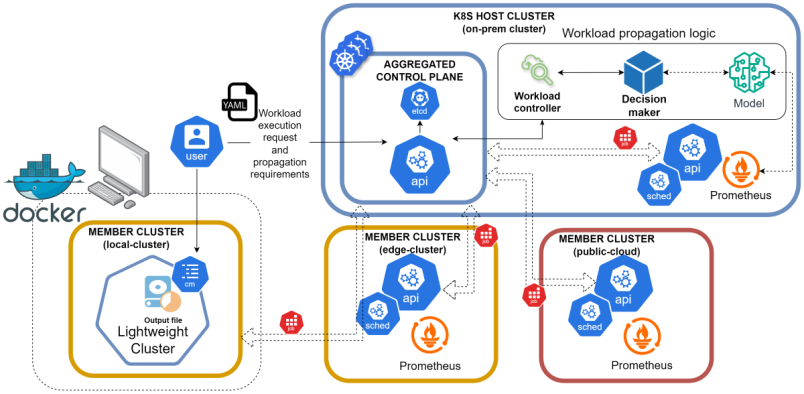
AI-Enhanced Scheduling in Cloud Continuum Systems
New challenges are arising from the cloud evolution. This PhD project focuses on distributed systems in the cloud continuum, improving user experience through multi-cluster abstraction and intelligent scheduling.
Objectives include optimizing resource allocation with AI, integrating multi-agent reasoning into Kubernetes, and exploring LLM-driven decision processes for adaptive cloud applications.
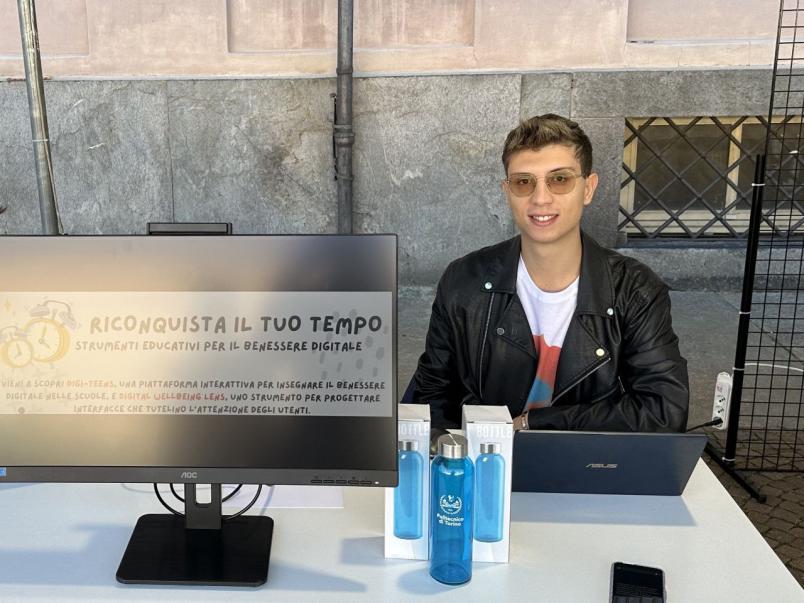
Novel Interactive Systems Promoting More Intentional Technology Use
In a world where technology is increasingly present, there is a growing need for supporting younger generations in improving their relationship with smart devices and reaching digital wellbeing. Through innovative interfaces, this research aims at educating children and teens to healthier digital habits and create new means through which they can improve their relationship with technology.

Automated Cyber Threat Mitigation for Cloud-Native Environments
Cloud-Native environments enable digital services to adapt and scale with unprecedented speed, meeting the needs of modern organizations. Yet this very flexibility introduces serious security challenges, requiring novel security approaches. This research introduces an intelligence-driven framework for cyber threat mitigation, designed to detect risks early and suggest timely responses, ensuring resilience and reliability even under changing conditions.
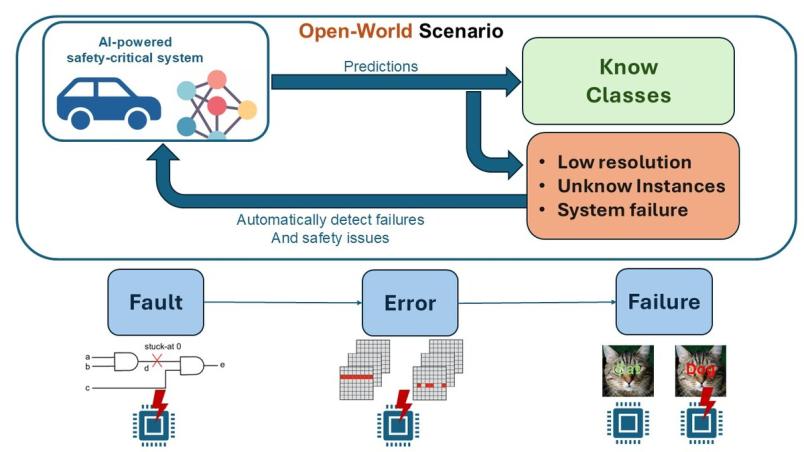
Reliability evaluation and hardening of AI accelerators
My research focuses on the reliability of deep learning models increasingly used in safety-critical domains. As DNNs grow larger, assessing their reliability becomes challenging. I develop cost-effective testing approaches to detect hardware faults and mitigation strategies to reduce the impact of errors and vulnerabilities.
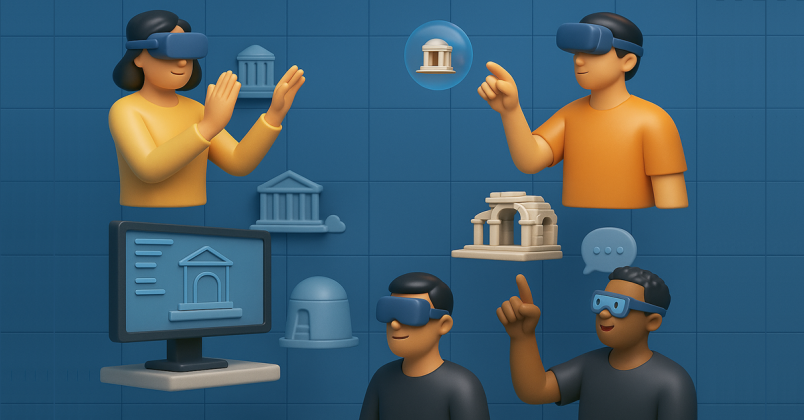
Digital Reconstruction, Simulation, and Interaction Techniques for Effective eXtended Reality Experiences
The research aims to address key challenges in reconstructing and simulating physical and fictional environments, objects, and phenomena, enabling seamless user interaction. The main objective is to focus on modeling physical phenomena in interactive simulations, creating believable virtual environments as alternatives to real experiences, and designing natural and intuitive user interfaces.
Device-Aware Test Methodology for Comprehensive FeFET Defect Analysis
My research is device-aware test (DAT) approach for FeFETs that models and analyzes various physical defects based on real device data. This methodology integrates empirical calibration, circuit-level fault modeling, and simulation to derive realistic fault models beyond conventional methods. Using DAT, we can classify and detect both easy-to-detect and hard-to-detect faults through tailored March algorithms and design-for-test circuits.
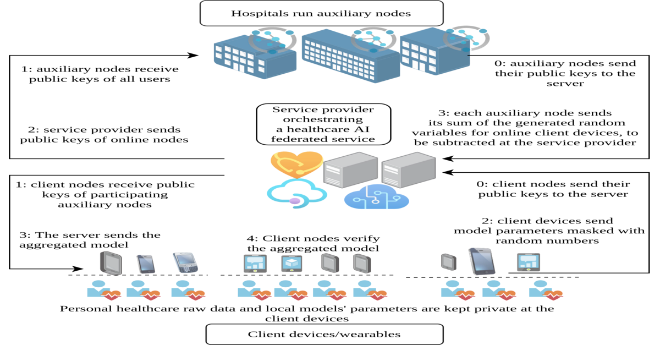
Data Privacy and Security in Federated Learning: Attacks and Defense Mechanisms
Federated learning has emerged as a promising approach for preserving privacy. However, recent studies show that private training data can be leaked through many attacks. Our research examines these security weaknesses, focusing on how adversaries extract private information from gradients, with the goal of developing comprehensive solutions to protect data privacy in federated learning.

Exploring AI Solutions for Urban Data Science in Smart Cities
The future of smart cities relies on the combination of urban data science and Artificial Intelligence, which are crucial for enhancing citizens' quality of life and integrating new technologies. This research exploits advanced machine learning and deep learning techniques to transform complex and heterogeneous data into actionable insights, providing effective solutions to real-world challenges.
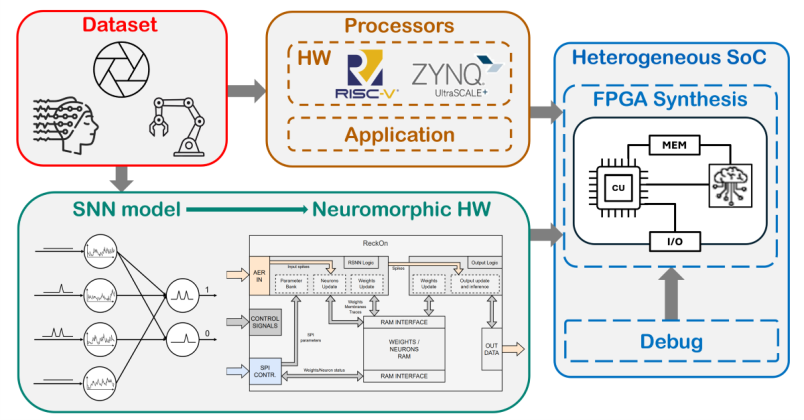
Design of digital/neuromorphic computing systems and SDK
This PhD research, funded by EBRAINS-Italy, aims to accelerate the engineering process behind the simulation of Spiking Neural Networks through the creation of heterogeneous SoCs on FPGA-based systems. The system will support the development of neuromorphic applications by combining the advanced computing capabilities of SNNs accelerators and the configurability provided by traditional processors.

Deep learning and computer vision approaches for clinical support: from cognitive impairment detection to pediatric care
This PhD research applies AI methods for clinical decision support. It investigates facial expressions as potential non-invasive biomarkers for early and differential diagnosis of dementia, using computer vision techniques. In parallel, it also analyzes facial expressions for contactless, camera-based assessment of pain in infants, addressing a critical challenge in pediatric care.
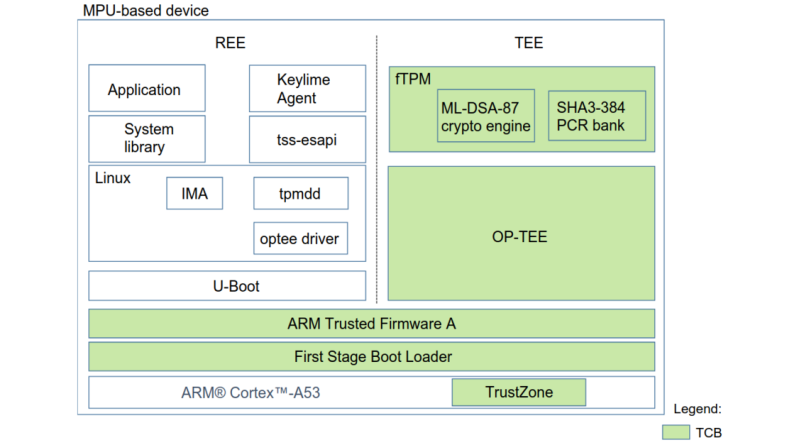
Security of cyber-physical systems
This research focuses on securing devices by designing and implementing solutions leveraging security techniques mostly based on Trusted Computing. This involves evaluating hardware and software support for trusted execution on limited-capability nodes. The goal is to demonstrate a secure CPS ecosystem with strong identity, secure communications, and integrity monitoring using Trusted Computing, Post Quantum, and AI techniques.
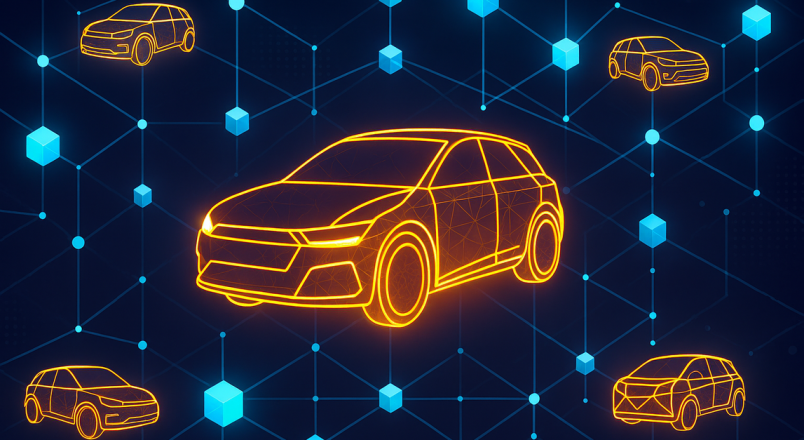
Blockchain Technology for Intelligent Vehicles
This research advances secure blockchain applications in the automotive sector. Developing comprehensive solutions for vehicle data management, automotive supply chain transparency, and trusted digital infrastructure that enables the transformation of intelligent transportation. Focus areas include enhancing data integrity, system trust, and cross-platform compatibility.
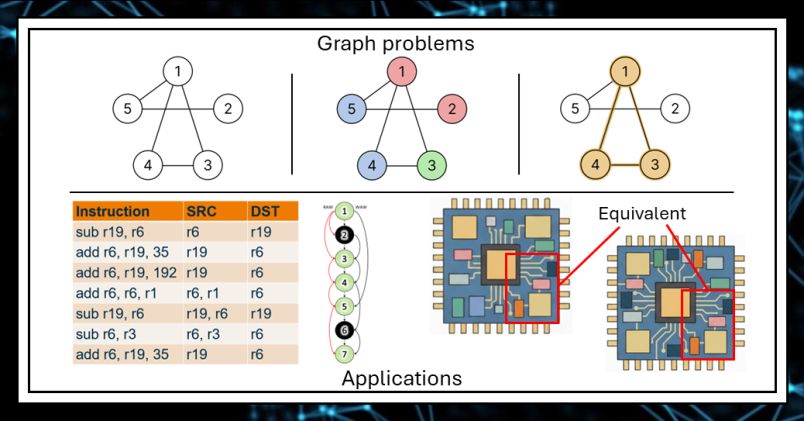
GPU-based Parallel Techniques for the Evaluation of Reliability Measures of Large System-on-Chip devices
Graphs can represent a wide range of problems and are used across many fields. This research studies the intricacies of hard graph problems and key parallelization schemes. These methods will guide the implementation of parallel tools for fast computation of metrics useful in testing large SoC devices.
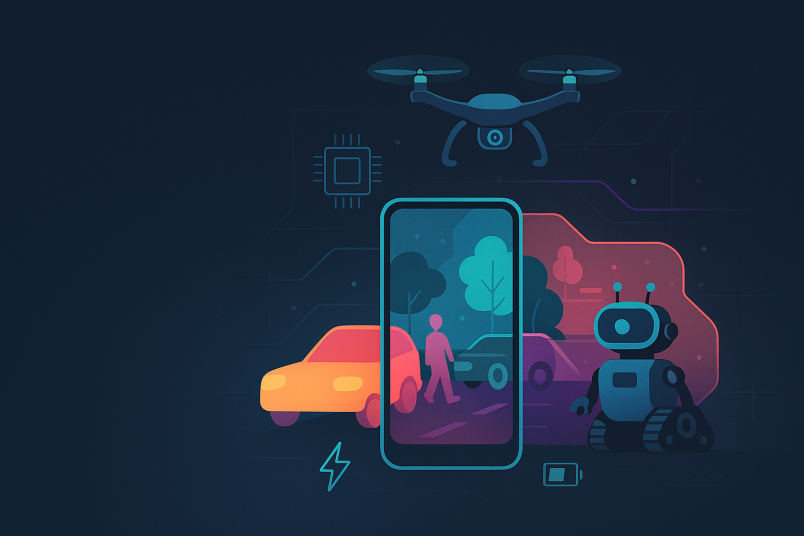
Enabling complex computer vision tasks on the edge: applications to semantic segmentation and beyond
I develop efficient learning methods and model adapters that bring semantic segmentation, and related perception tasks, to resource-constrained edge devices. The goal: real-time, energy-aware inference with strong generalization, enabling robust vision on phones, robots, and drones in the wild.
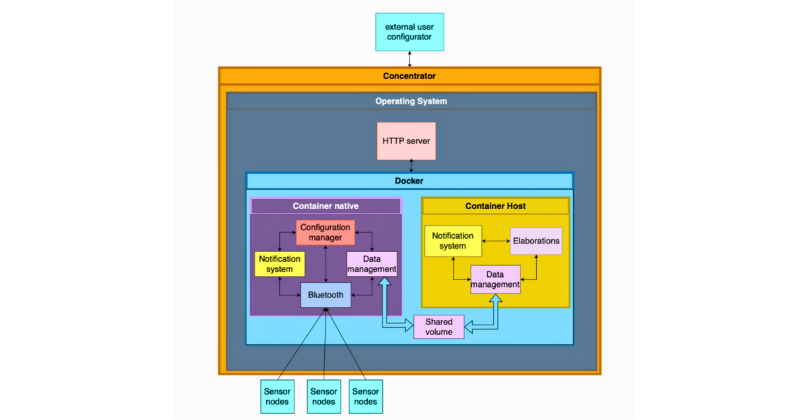
Innovative solutions for Industrial IoT
This research focuses on bringing innovation to food and beverage machinery through Industrial IoT, managing the project with stakeholders to identify needs and challenges. A reference IIoT architecture is defined with AROL Closure Systems, including an embedded fog computing node using AI for predictive maintenance, enabling real-time monitoring and data processing across field, edge, cloud, and connectivity.
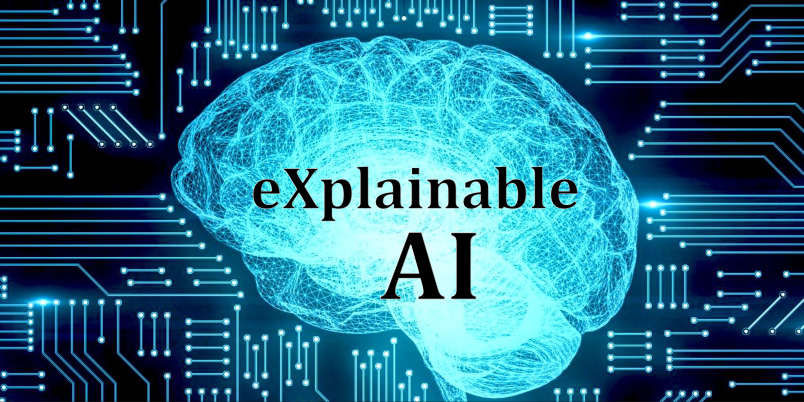
Making Concept-Based Models More Reliable and Actionable
While these Concept-based models provide interpretability through human-understandable variables, they often fall short in capturing the true causal mechanisms driving the data. My research focuses on bridging that gap—developing models that not only remain accurate, but also improve interpretability, strengthen causal reliability, and respond more effectively to interventions.
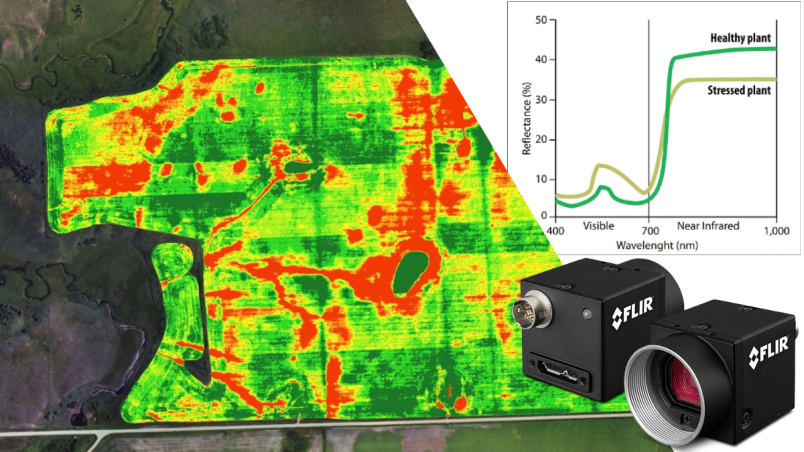
Smart Systems for Agriculture
This research advances spectral data classification in plant phenotyping, from lettuce water stress detection to automated cucumber disease diagnosis (Mycosphaerella), by applying BOSS, GA, and CARS for optimal band selection. In parallel, soil water content forecasting employs deep models (RNN, GRU, LSTM) to deliver more accurate and reliable predictions for better water management.
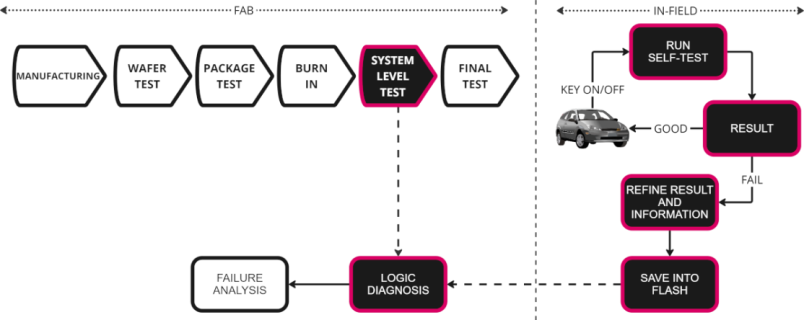
Manufacturing and in-field testing techniques
This research aims to enhance the reliability of modern SoC in automotive and safety-critical sectors. Current testing methods fall short in ensuring reliability, necessitating new approaches covering a device's lifecycle. Key areas include improving functional manufacturing testing to reduce yield loss, developing in-field self-test routines for high fault coverage, and using logic diagnosis.

XR for Cultural Heritage Accessibility
The topic of eXtended Reality (XR) for Cultural Heritage (CH) is highly relevant in the scientific community, particularly in computer science. The number of works combining CH and XR has surged, covering virtual exhibitions, reconstructions, narrative experiences, and educational systems. Accessibility in XR and CH is either implicitly or explicitly addressed, but deeper exploration is needed. Key elements are physical and perceptual accessibility, catering to users with disabilities or neurological disorders.
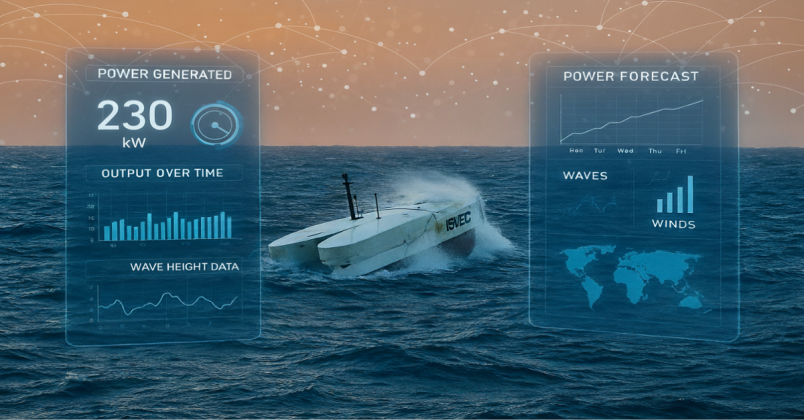
Digital Twin Models for Marine Offshore Renewable
The research focuses on the design and development of Digital Twin of real-world Wave Energy Converters (WECs) and takes advantage of Machine Learning algorithms to i) forecast energy production in the short and mid-term and for ii) WEC design optimisation. The objectives also include the development of an Internet of Things (IoT) platform capable of collecting, storing, and analyzing the WEC’s sensed data.
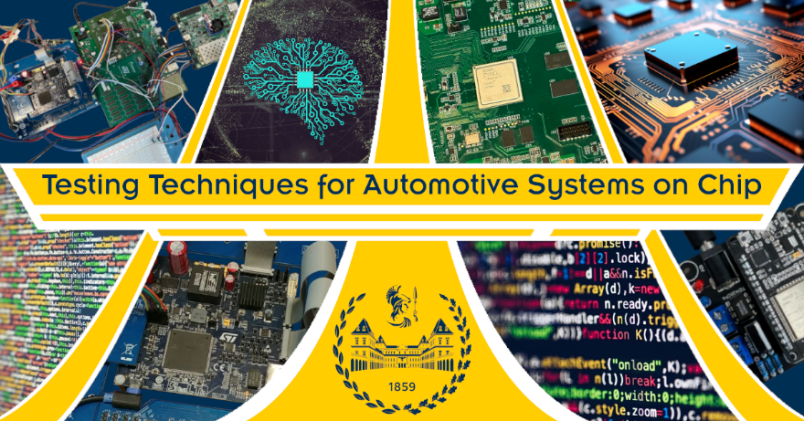
Testing Techniques for Automotive Systems on Chip
The proposed research project will focus on testing techniques used for automotive systems-on-chip. The study aims to identify the most effective testing methods to recognize chip defects and reduce the number of defective microelectronic devices entering the market. The outcomes of this study will contribute to the creation of new testing techniques that can be applied to microelectronic devices.
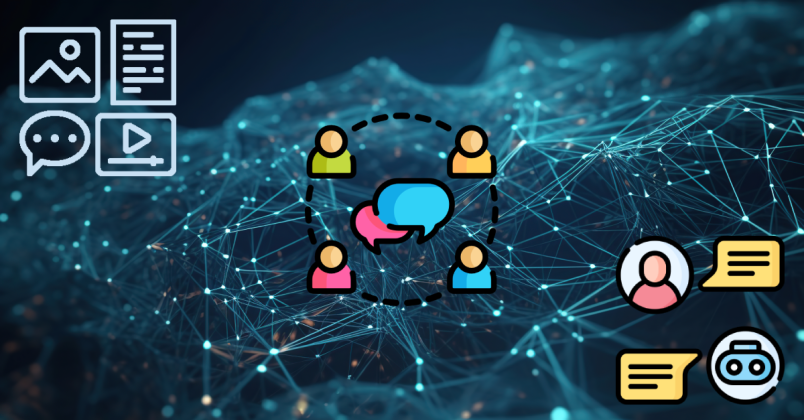
Conversational AI – New tasks and models for conversational applications
Given the rapid proliferation of Conversational AI across academia and industry and its widespread user adoption, my research aims to explore the diverse tasks and models within this field. By leveraging the unique characteristics of conversational data, my goal is to develop more effective solutions for both new applications and traditional NLP tasks applied to the conversational domain.
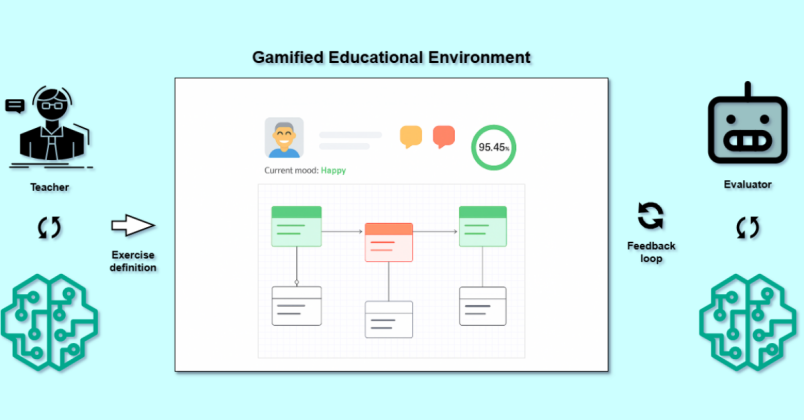
Advancing Software Engineering Practices through Gamification and Automated Techniques
This research focuses on enhancing software engineering disciplines such as requirements definition and UI testing with gamification (using game-like elements in non-recreational concepts for increased enjoyment). The main goal is the development of a gamified learning environment with live feedback and game elements, supported by LLM interaction for the definition and evaluation of exercises.
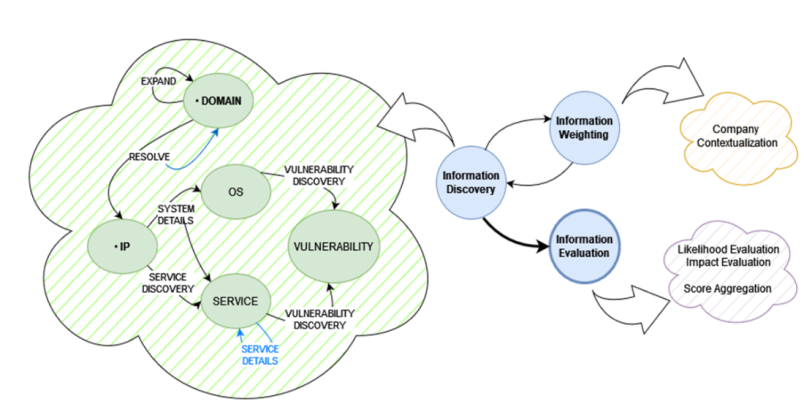
Automatic Analysis of Cybersecurity Risks
The research focuses on developing methodologies for the automated collection and evaluation of cyber risk information. While initially designed for SMEs, the approach extends to cloud-continuum environments. Building on an Expert System for automated data gathering and evaluation, the work explores enhancements to other key aspects of risk management, including monitoring across multi-domain, multi-level architectures and risk remediation in cloud-native environments. Current efforts investigate novel strategies for risk evaluation, with a particular emphasis on LLM-powered multi-agent systems.
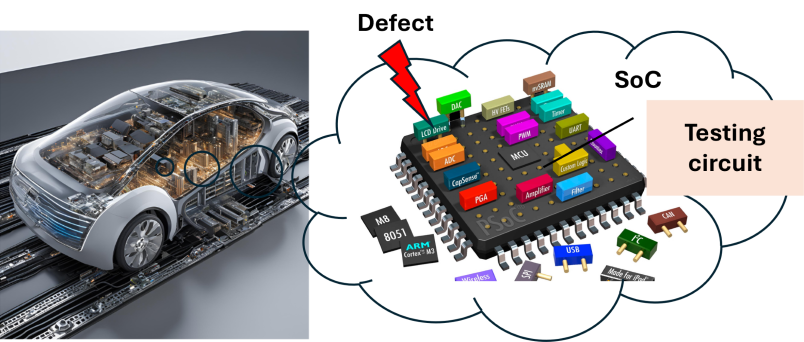
Functional Safety Techniques for Automotive-oriented Systems-on-Chip
With recent improvements in System-on-Chip (SoC) technologies, the complexity of SoCs is advancing, and their dimensions are shrinking, so they have more frequent physical defects. Automotive SoCs are used in fields such as electric vehicles, aerospace, etc.; testing is needed for high application quality. The main target of my research is to develop self-testing circuits inside SoCs.
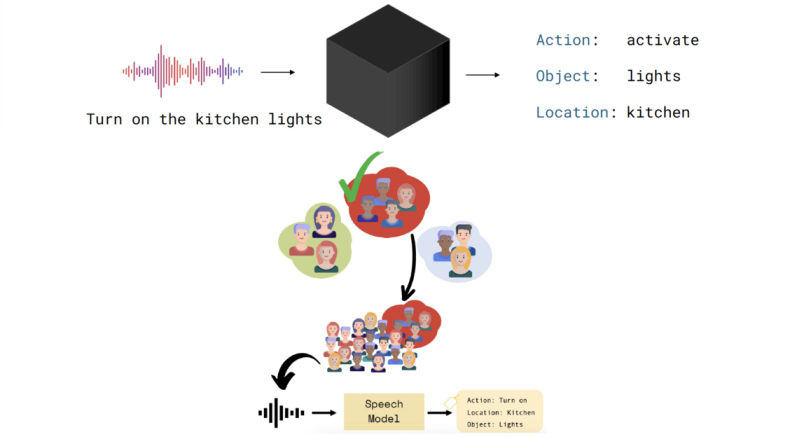
Explainable AI for spoken language understanding
This research aims to build more trustworthy speech AI by identifying and mitigating biases across diverse population cohorts. To address gaps in responsible deployment, we establish novel benchmarks for evaluating hallucinations and privacy-preserving data removal. We complement these efforts by introducing models and datasets that improve robustness and inclusivity for varied modalities.
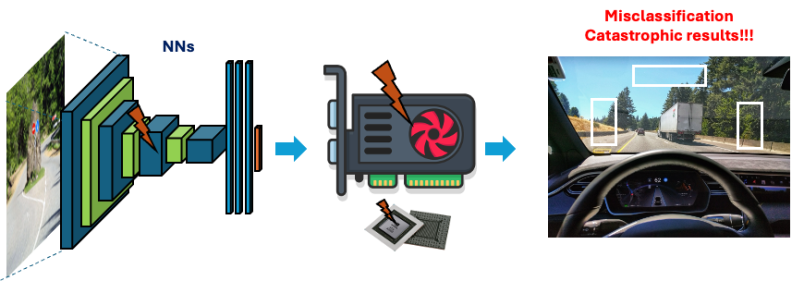
New Techniques for the Reliability Evaluation of Neural Networks running on GPUs
The reliability of neural networks deployed on GPUs is crucial in many domains (automotive). Given the complexity of both hardware and software, estimating reliability figures is challenging. My activities focus on new approaches to characterize the vulnerability to faults affecting the hardware while exploring methods to detect faults and developing clever strategies to enhance system resilience.
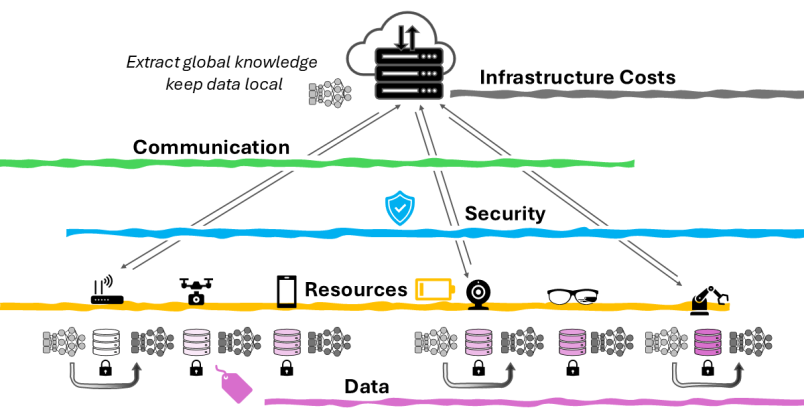
Distributed and Federated Learning over IoT networks
Unlocking the full potential of the Artificial Intelligence of Things (AIoT) requires privacy-preserving training strategies. This project tackles the resource constraints that limit the large-scale adoption of Distributed and Federated Learning over IoT networks. To this end, it explores dynamic and adaptive strategies to reduce costs, while preserving both accuracy and privacy.
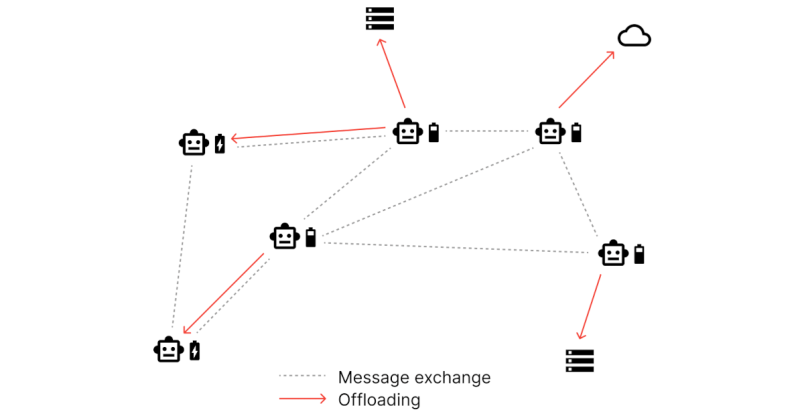
Efficient 6G Softwarized Network Infrastructures
My research enhances Kubernetes clusters for seamless resource sharing in the Computing Continuum, offloading tasks from robots to 6G edge or cloud resources. This reduces battery use and boosts computational power by accessing advanced resources like GPUs, and idle charging robots to improve efficiency, aiming to create a more efficient computing environment for autonomous robots.
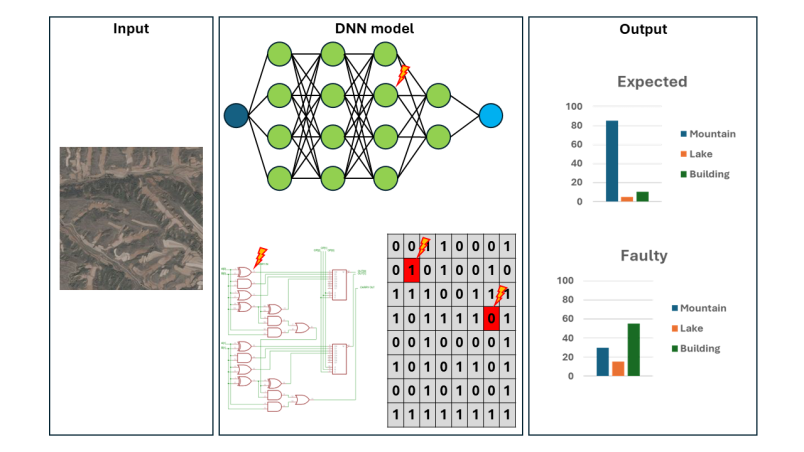
Robust, accurate and efficient deep neural networks for satellite and mobility applications
Computing platforms in vehicles and satellites are becoming more powerful. However, deploying deep learning applications on these platforms requires deep neural networks that maintain high accuracy, efficiency and resilience, even in the presence of transient faults like radiation-induced errors. This research focuses on ensuring DNNs meet these stringent standards.
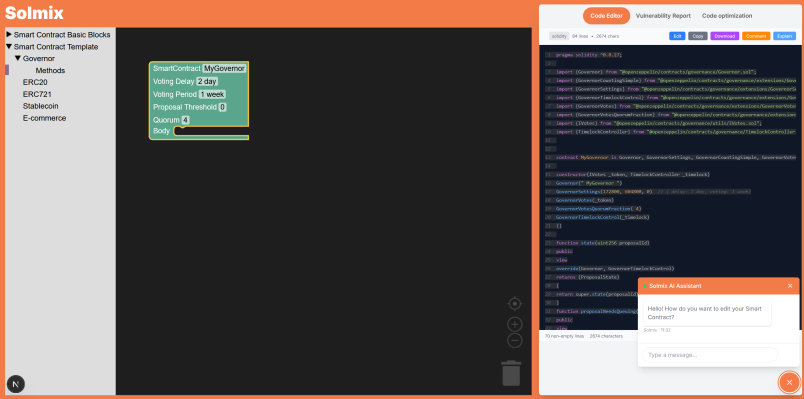
Analysis, search, development, and reuse of smart contracts
The convergence of blockchain and AI is reshaping how we approach smart contract development. Our research introduces a tool that makes blockchain technology accessible to non-technical users that offers visual smart contract creation using Google Blockly, AI-powered rapid prototyping with Large Language Models, and automatic vulnerability detection - all with no coding experience required.
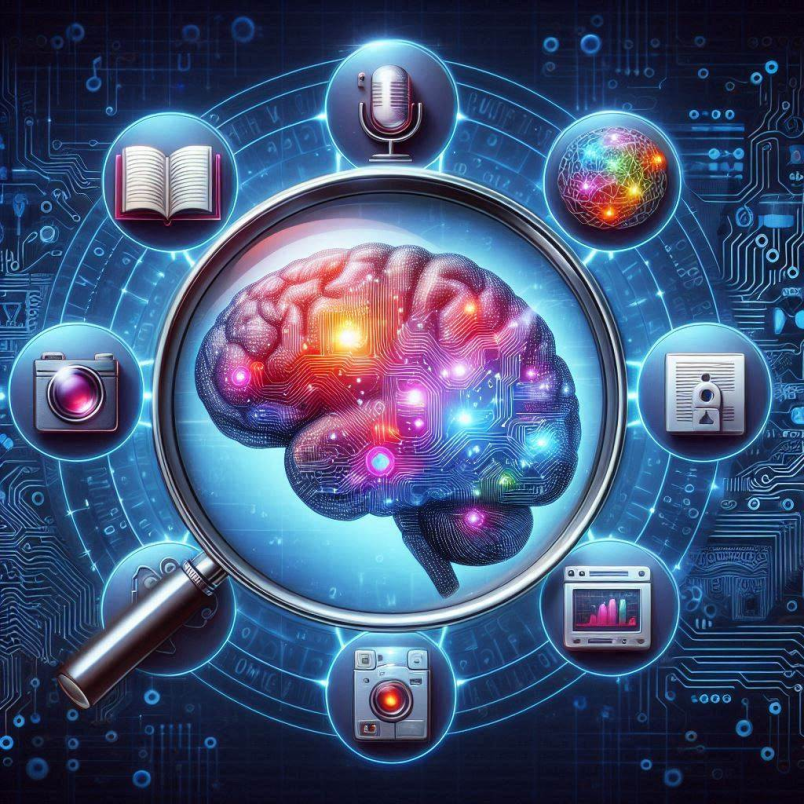
Neural Explainers and Multimodal Learning
My PhD research focuses on developing and exploring new neural approaches to enhance the interpretability of complex AI models and advancing multimodal learning techniques to effectively integrate data from diverse sources, such as text, images, and tabular data. By achieving this, I aim to design AI systems able to make existing AI models more transparent and explainable, providing deeper insights into their decision-making processes and fostering greater trust in their applications across various domains
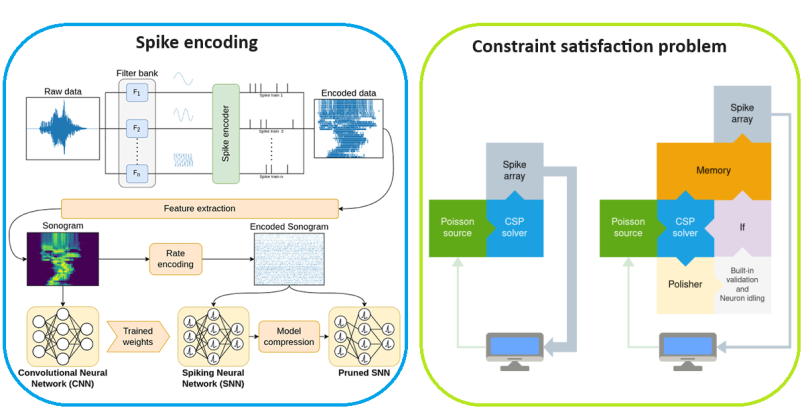
New computational paradigms for neuromorphic HW
The aim of the PhD research activities is to investigate the novel computational paradigm enabled by neuromorphic models, implemented with spiking neural networks, in the areas of machine learning and edge computing. The focus is on digital-to-spike data encoding methods and the adoption of these networks to solve problems belonging to the class of constraint satisfaction problems.

Spatio-Temporal Machine Learning for Crisis Management and Ecology
The recent availability of public satellite imagery and textual information are excellent sources to support ecological transition and crisis management. The research focuses on developing efficient and scalable machine-learning solutions to help humanity face great challenges, such as managing natural disasters, preserving green areas, and improving food production.
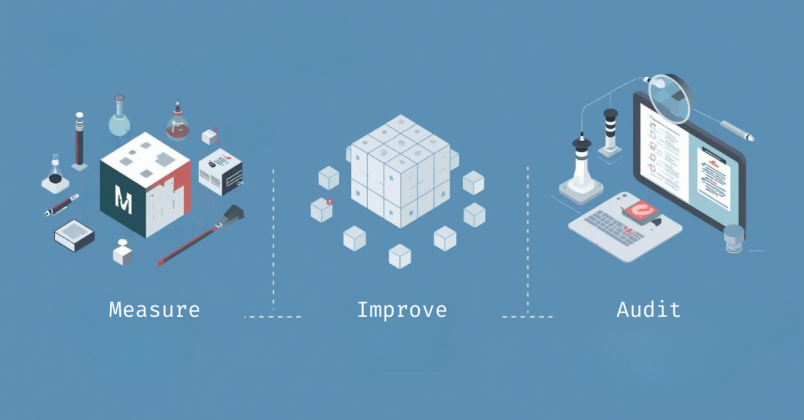
Responsible development and use of AI: from principles to practices
My goal is to promote the responsible development and use of AI. My research focuses on measuring training datasets and improving them using synthetic data. By examining factors such as data quality, balance, and documentation, I aim to address the ethical challenges associated with AI. Finally, I am auditing the outcomes of AI systems to identify the most prevalent patterns of discrimination.
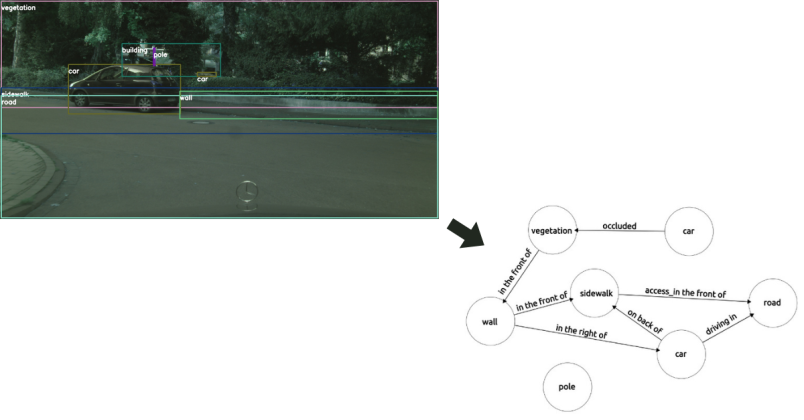
Neural-symbolic scene integration & generation
Neuro-Symbolic (NeSy) techniques enhance scene understanding by combining neural learning with symbolic logic. As a second-year PhD student, my research focuses on using NeSy in Scene Graph Generation (SGG) to detect objects and refine relationship predictions in visual scenes. Applications include autonomous driving and improved human-computer interaction, combining robustness and clarity.
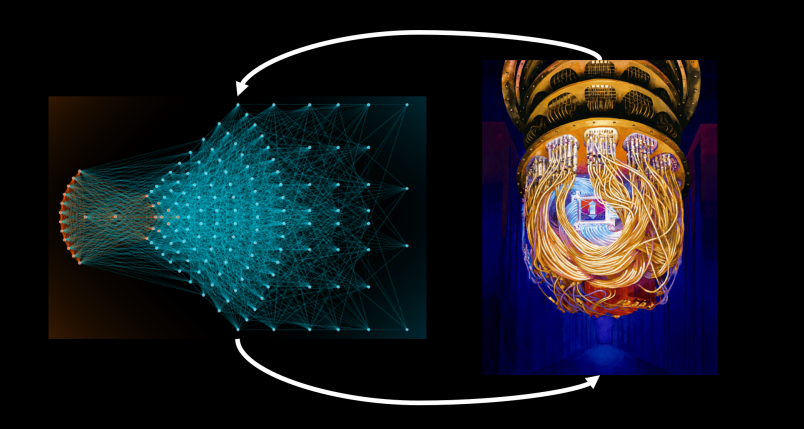
Quantum Machine Learning
QML explores the applications of quantum computing to machine learning and vice versa. It involves both using quantum algorithms to enhance traditional ML tasks, potentially offering exponential speedups, and applying ML techniques to quantum control, improving the efficiency and performance of quantum operations at the physical level.
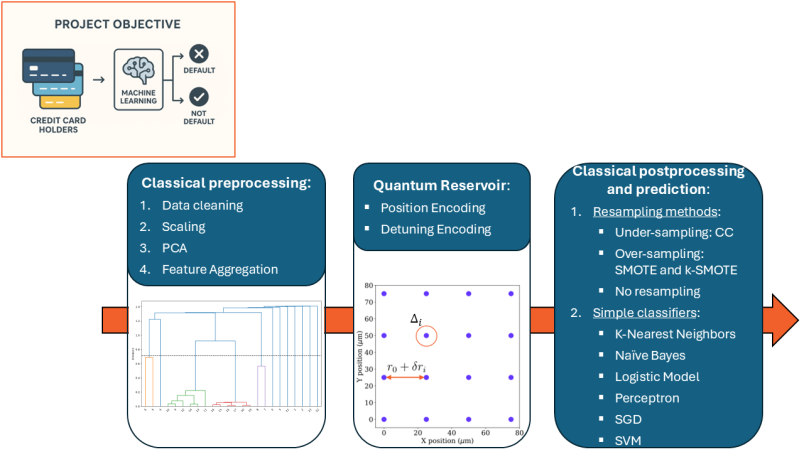
Quantum Machine Learning Applications and Algorithms for Industrial Use Cases
The research focuses on the design and development of quantum algorithms for industrial applications, with an emphasis on optimization and machine learning. It explores hybrid quantum-classical approaches to address the limitations of NISQ (Noisy Intermediate-Scale Quantum) devices and enable practical use of quantum computing in real-world problems.
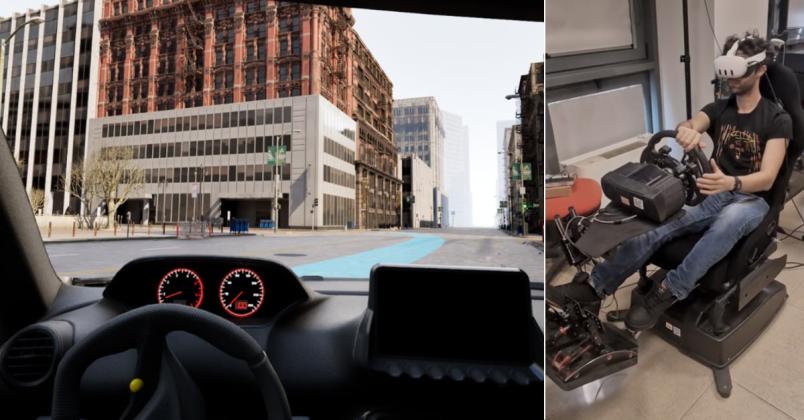
In-Car Augmented Reality Head-Up Display
The thesis In-Car AR HUD investigates unexplored niches of the field. It first addresses the need for a shared open-source immersive simulator built on CARLA, then applies it to cases such as AR HUDs for explainable AI in Level 4 AVs and for work vehicles, contributing to safer, more trustworthy, and future-ready mobility.

Digital Twin, Presence & Interaction in Metaverses
This research seeks to advance the development of the metaverse by enhancing user interaction, immersion, and social connectivity. By leveraging cutting-edge digital twin and refined virtual environment design, it creates highly realistic representations and intuitive interaction mechanisms. The objective is to foster social experiences and digital interactions within engaging virtual spaces.
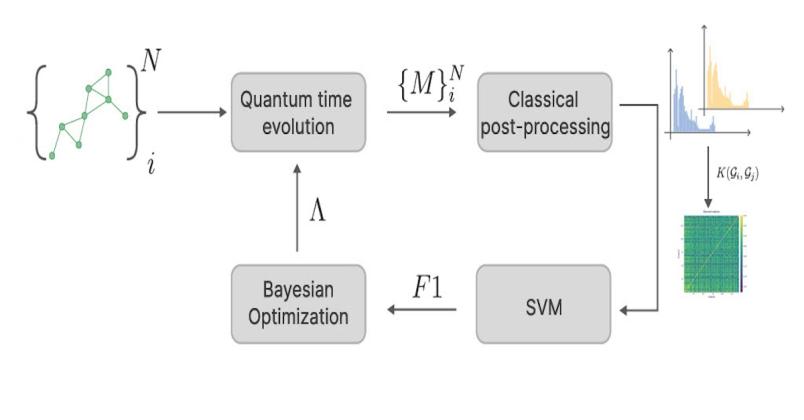
Quantum Machine Learning Applications and Algorithms for Technology Transfer
Quantum Machine Learning holds the potential to outperform classical methods. However, the embryonic stage of these technologies limits the applicability of such algorithms to real-world problems. My work focuses on reducing this gap by matching applications to the most suitable combination of state-of-the-art QML algorithms and technological platforms, with a focus on neutral atom simulators.
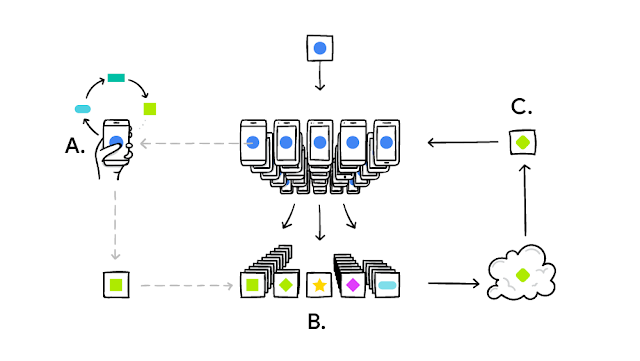
Algorithms and architectures for distributed training of deep neural networks
Modern success of deep learning relies on increasingly complex models, whose training requires large amounts of data and computing resources. This PhD project investigates the problem of distributing the training of deep neural networks and developing novel algorithms and model architectures to enable efficient and effective decentralized training for next generation deep learning applications.